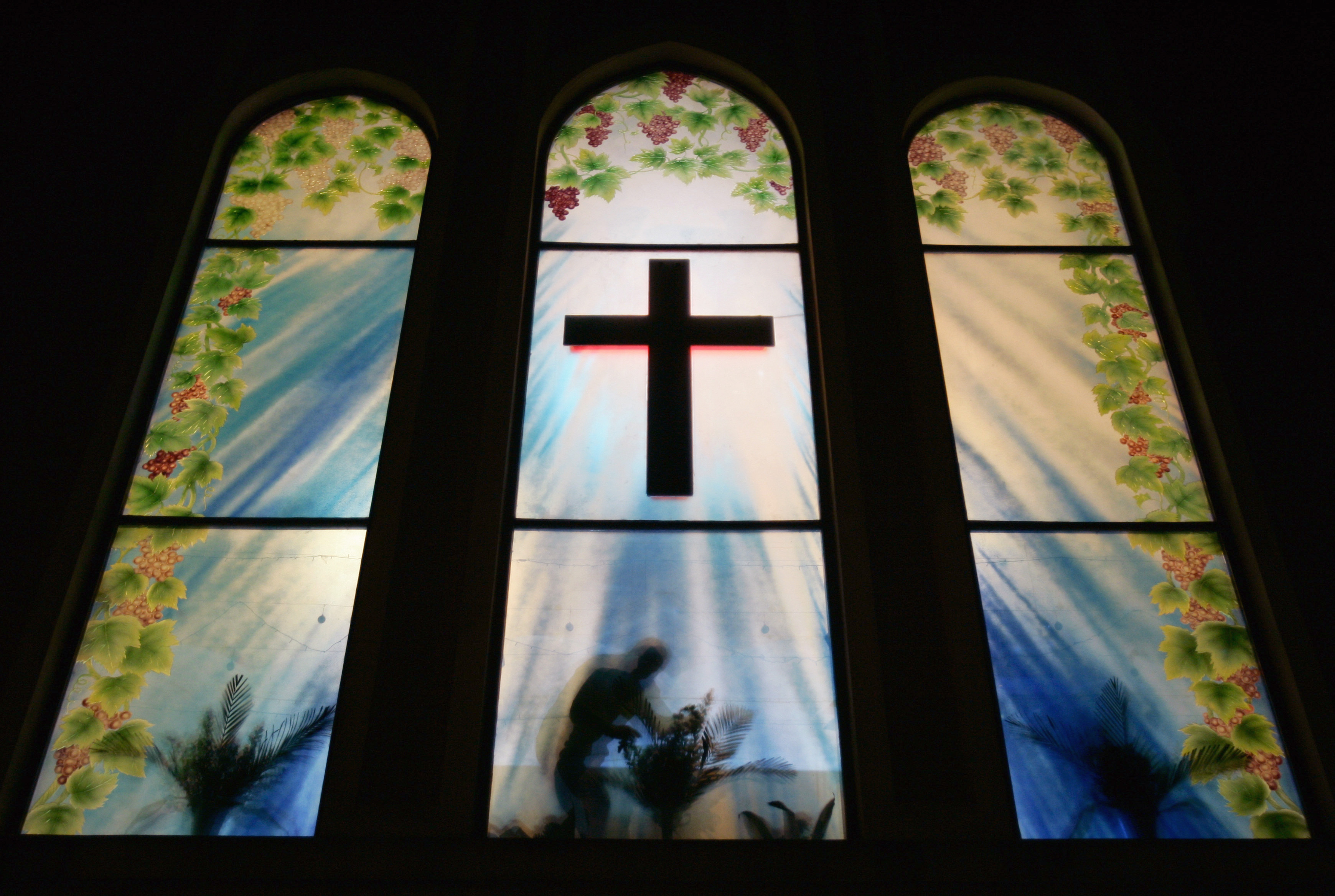Christians need to face the bad news about Christianity
Sorry, the rise of the "nones" is actually a big deal


A free daily email with the biggest news stories of the day – and the best features from TheWeek.com
You are now subscribed
Your newsletter sign-up was successful
Christianity is declining in the United States, according to new Pew surveys. And I have some news for my fellow Christians: This is actually bad news for Christianity.
That may seem obvious, but Russell Moore, an online acquaintance, a Baptist minister, and president of the Southern Baptist Ethics and Religious Liberty commission thinks there is a lot of upside to the rise of people who don't identify with a religion, otherwise known as the "nones." For him, they indicate the falling away of semi-Christians, and the declining cachet of Christianity as an empty social-marker. He writes:
Christianity isn't normal anymore, and that's good news. The Book of Acts, like the Gospels before it, shows us that the Christianity thrives when it is, as Kierkegaard put it, a sign of contradiction. Only a strange gospel can differentiate itself from the worlds we construct. But the strange, freakish, foolish old gospel is what God uses to save people and to resurrect churches (1 Cor. 1:20-22).We do not have more atheists in America. We have more honest atheists in America. Again, that's good news. The gospel comes to sinners, not to the righteous. It is easier to speak a gospel to the lost than it is to speak a gospel to the kind-of-saved. [Moore to the Point]
Moore is right that as Christianity becomes less of a "default" religious affiliation, Christians have a greater opportunity to make a fresh appeal. But I think a case can be made for the fallen-away, for backsliders, the lukewarm, the non-practicing, the "cafeteria Catholics," and the "cultural Christians.”
The Week
Escape your echo chamber. Get the facts behind the news, plus analysis from multiple perspectives.

Sign up for The Week's Free Newsletters
From our morning news briefing to a weekly Good News Newsletter, get the best of The Week delivered directly to your inbox.
From our morning news briefing to a weekly Good News Newsletter, get the best of The Week delivered directly to your inbox.
Yes, some of the rise of the "nones" are the result of atheists and agnostics being more honest with themselves. But look at Barna Group's more sophisticated surveys of how people feel about church: 51 percent say it is "not too" or "not at all" important. Then look at statistics that drill down into church attendance: More than half of millennials and Gen Xers say they have not been to church in the last six months. These are troubling signs.
Fewer millennials going to church does mean fewer "cultural Christians." But does cleansing Christianity really outweigh the repercussions from letting the number of faithful dwindle?
When Billy Graham was preaching to Madison Square Garden, he wasn't addressing a coliseum of "nones" but people with a variety of church-y backgrounds. Many of them probably had a previous relationship not just with God, but with the hymn "Just As I Am," that played whenever he called them forward to make a decision for Christ. It was a revival, not a mass conversion.
Fewer "cultural Christians" also means a smaller population of Americans whose first instinct will be to defend their church from secularism in the cultural and political field. Like counterfeit bills, the presence of fake-Christians is a sign that the real thing is considered valuable. Cafeteria Catholics are proof that the Church is still serving something people feel the need to sample. The lack of semi-Christians might not be a moment of clarity, but a sign that our churches are boring, offering self-help pablum, rather than salvation.
A free daily email with the biggest news stories of the day – and the best features from TheWeek.com
At bottom, there may be some confessional reasons why Moore likes the more stark contrast between an honest "none" and a convinced Christian. Evangelical Protestantism converts people with bold proclamations, and invites them to a clear decision. For Catholics like me, divine grace catches sinners with G.K. Chesterton's fictive detective, "an unseen hook and an invisible line which is long enough to let him wander to the ends of the world and still to bring him back with a twitch upon the thread.”
The only good news in the reported plunge for Christians is that it alerts us to the sorry state of our churches. It's not just the rise of "honesty" among atheists, but a rise in the number of people who Christianity isn't reaching at all. It should be seen less as an opportunity for growth than a sign of decay and dissolution.
Michael Brendan Dougherty is senior correspondent at TheWeek.com. He is the founder and editor of The Slurve, a newsletter about baseball. His work has appeared in The New York Times Magazine, ESPN Magazine, Slate and The American Conservative.
-
 How the FCC’s ‘equal time’ rule works
How the FCC’s ‘equal time’ rule worksIn the Spotlight The law is at the heart of the Colbert-CBS conflict
-
 What is the endgame in the DHS shutdown?
What is the endgame in the DHS shutdown?Today’s Big Question Democrats want to rein in ICE’s immigration crackdown
-
 ‘Poor time management isn’t just an inconvenience’
‘Poor time management isn’t just an inconvenience’Instant Opinion Opinion, comment and editorials of the day
